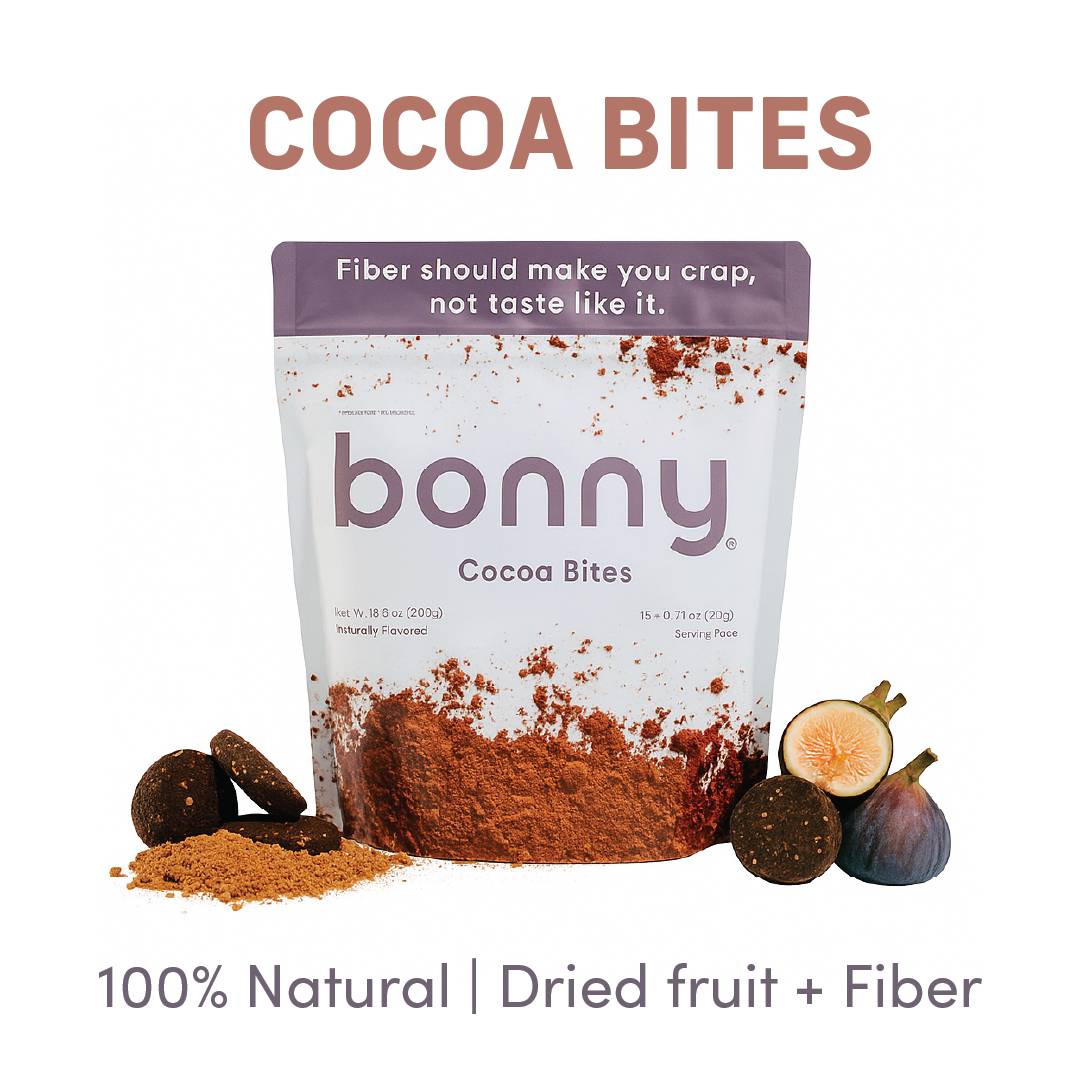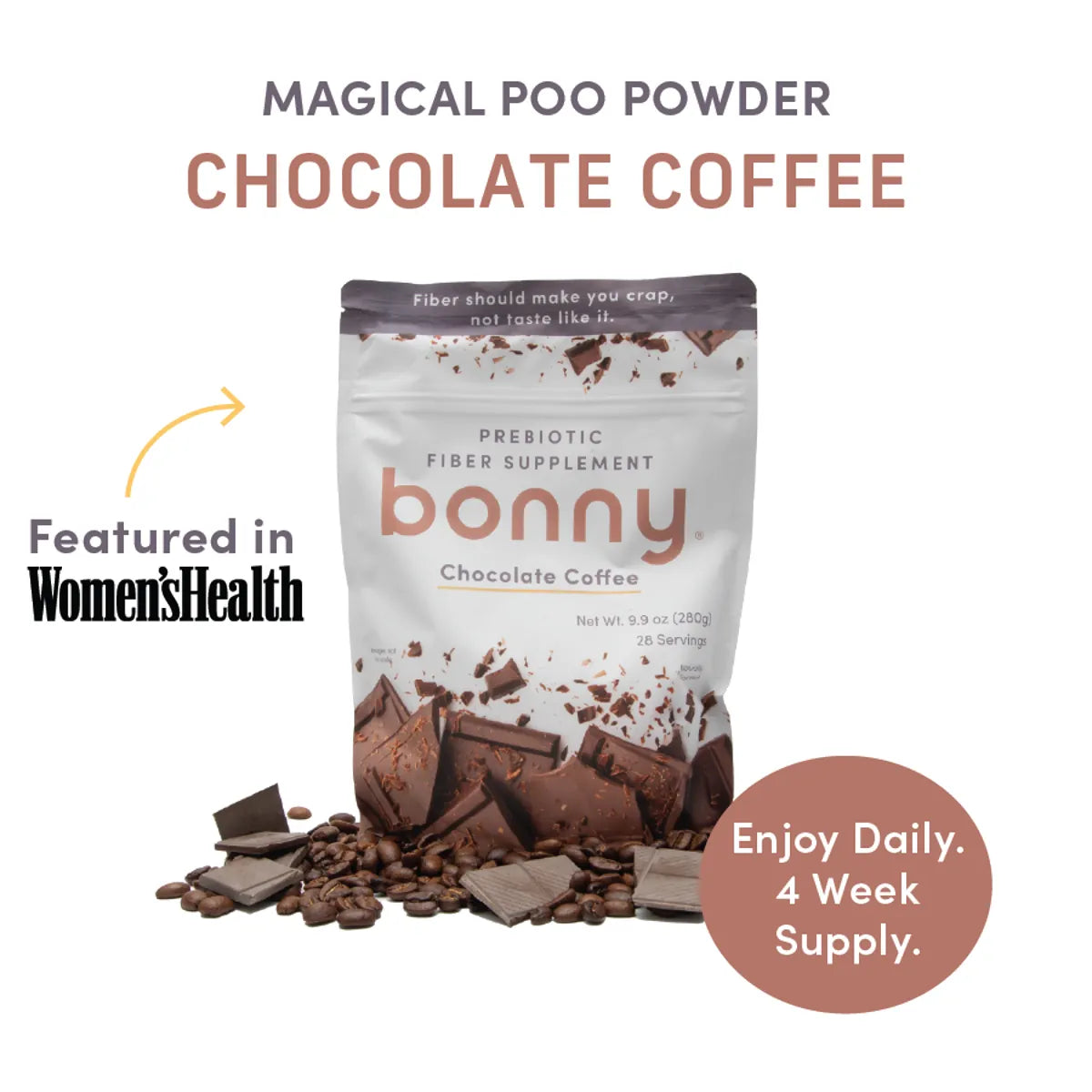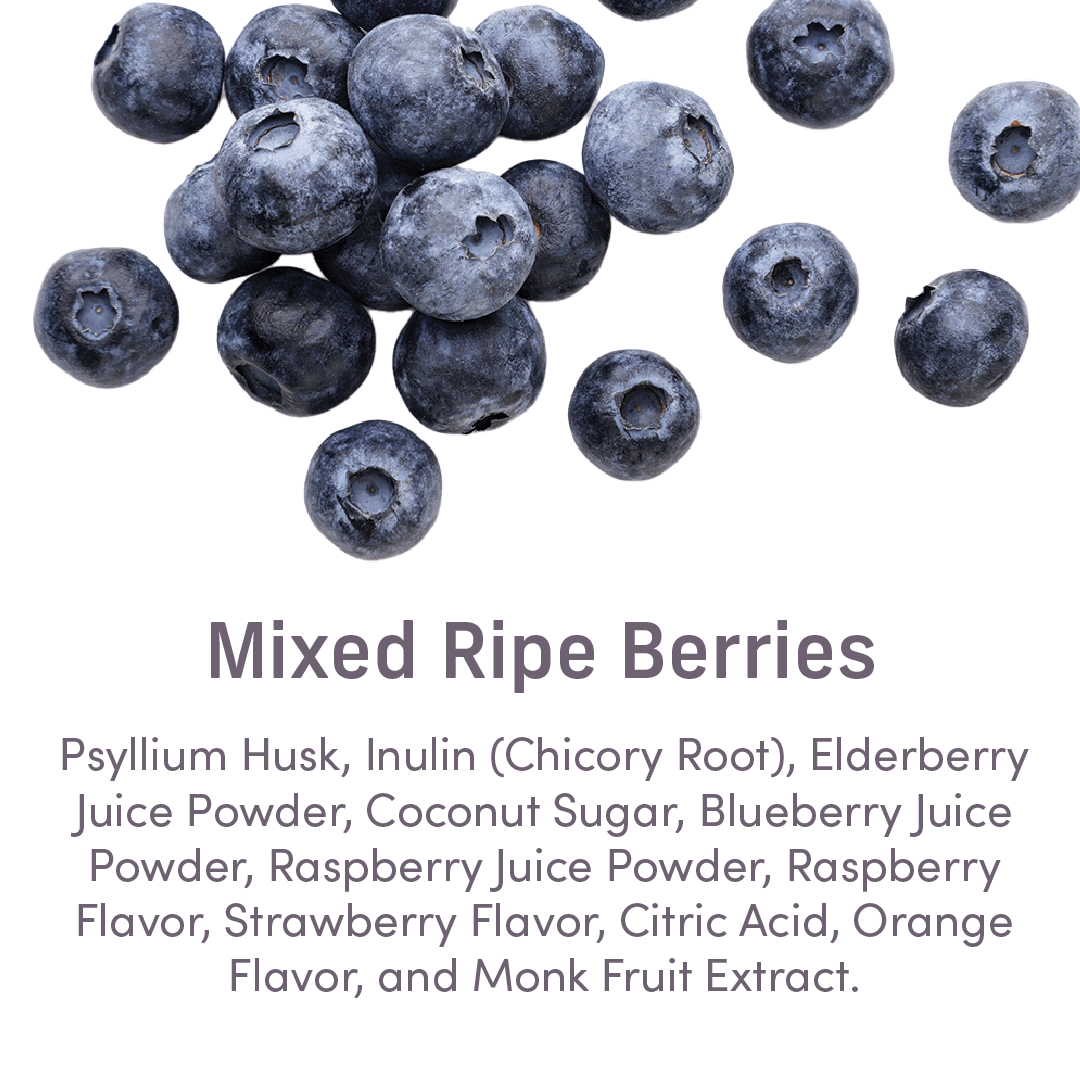First off, how do you pronounce this fibrous ingredient and what is it? Psyllium (pronounced si-lee-um, ignore the p at the beginning), helps with all things pooping.
However you say it, we love psyllium husk because it helps keep your digestive tract in tip-top shape and helps relieve constipation and mild diarrhea. That's why psyllium husk (and prebiotic inulin) are the fiber blend in Bonny fiber supplements. Read on to learn more about why we love psyllium husk.
So What Is This Wonderous Fiber?
Psyllium husk is a soluble fiber that is derived from the seeds of a shrub-like plant called Plantago ovato. The husk is this case is the outer casing of the plant's seed. Basically there is a plant, it has seeds and the outer shell of that seed is the fiber rich psyllium husk. Fun fact: the major of psyllium husk comes from northern India.
How Psyllium Husk Aids with Digestive Health

media.giphy.com
Psyllium husk LOVES to absorb water in the colon, turning itself into a gel that cleanses the intestine. (Imagine the texture of your favorite flavored jelly.) This gel bulks up the stool and stimulates the elimination of the bowels. It’s the smooth moves you need to reduce the symptoms of constipation, mild diarrhea and more.
Let's Talk About Diverticulosis and Diverticulitis
Yes, we know more difficult words to pronounce. But seriously our fiber rich friend psyllium husk can help if you have diverticulosis and diverticulitis. You may be asking what exactly is this condition and why two similar sounding name? According to the Mayo Clinic, “Diverticula are small, bulging pouches that can form in the lining of your digestive system. They are found most often in the lower part of the large intestine (colon). Diverticula are common, especially after age 40, and seldom cause problems.”
Welcome to health conditions you learn about in your 40s. (Also the rate of diverticulosis increases with age, and affects vast majority of those over 80.) OK, but if it’s common, what’s the problem? The problem dear reader is when one of these pouches becomes inflamed. The inflamed pouches are called diverticulitis and can cause abdominal pain, fever, nausea, and interfere with normal bowel movements. That’s not pleasant!

U.S. Soccer Federation / Via media.giphy.com
So why does diverticulosis occur? According to the Cleveland Clinic, scientists think it’s caused by not eating enough fiber which causes a buildup of waste (constipation) in your colon. We have been shouting from the rooftops about how amazing fiber is so we are not surprised.
OK how does psyllium husk help? As discussed above, psyllium husk becomes a gel that moves things through the digestive tract speedily. These pouches you just learned about form because of pressure on the intestinal walls from the strain of constipation. If things are flowing out smoothly there is no pressure.
Psyllium husk also helps direct poop through the intestines and to the toilet. No diversions in between so your poop doesn’t have a chance to get trapped in the opening of these pouches which can cause infection. Psyllium husk is gut health magic! Deeper dive on this here.
Now on to the H Word - Hemorrhoids
You have probably heard the term, may have even had hemorrhoids or known someone who did. It’s a very common condition (3 out of 4 adults) and its VERY uncomfortable. (Not so fun fact, hemorrhoids are common during pregnancy.)
According to our friends at the Mayo Clinic, hemorrhoids are “swollen veins in your anus and lower rectum, similar to varicose veins. Hemorrhoids can develop inside the rectum (internal hemorrhoids) or under the skin around the anus (external hemorrhoids).”

Brikk / Via media.giphy.com
Ouch just reading that makes us squirm in our chairs. Good news there are ways to treat and prevent hemorrhoids. You can guess where this is going… our friend Psyllium Husk.
So how can psyllium husk help with hemorrhoids? Straining to poop can cause swelling in the anus and constipation can add to the irritation and itchiness. Age can also cause the tissues that support the veins in your rectum and anus can weaken and stretch.
And this one is for all the expecting mothers-to-be, pregnancy can cause hemorrhoids because your little baby’s weight puts pressure on the anal region. Yep, things you learn about when you have your first child that no one told you about.
The best way to prevent hemorrhoids is to keep your stools soft, so it easily passes through the body and into your lovely porcelain toilet. Because psyllium husk can help make pooping a quick and even enjoyable experience, there is no straining.
To Recap, We Heart Psyllium Husk
These are just a few of the reasons why love psyllium husk and why our expert formulator thoughtfully included this fiber source in our product. Bonny actually contains a custom blend of fiber sources including psyllium husk powder and prebiotic inulin from chicory root. Our fiber powder is vegan, gluten-free, refined sugar-free, and fabulous (just like you)!
Most importantly Bonny comes in delicious flavors that you will crave daily like Apple Pie, Berry Beauty, and Super Strawberry. Not sure what flavor to try? Take our crappy quiz to learn more here.
As always, we wish you more pleasant poops.




